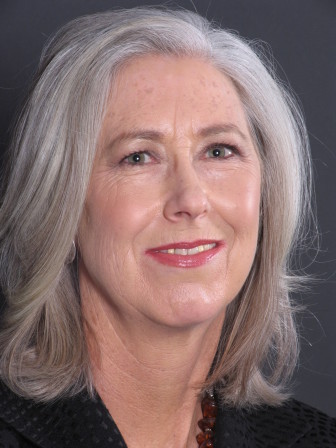Why does the U.S. health care system rank in the bottom third of developed nations, even though we spend twice as much as any other country?
According to Shannon Brownlee, senior vice president of the Lown Institute and author of the book, “Overtreated: Why Too Much Medicine Is Making Us Sicker and Poorer,” the crux of the problem lies within the doctor-patient relationship.
“We have a dysfunctional system in this country that is largely focused on doing more,” Brownlee said. “In our headlong rush to do a lot, fast, we forget about talking to patients — about what their prospects are, what the treatment options are, what the side effects are . . .

Shannon Brownlee
“Patients walk out of a doctor’s office with a prescription or a device like an asthma inhaler, and they don’t know what they’re using it for. They end up getting elective procedures because they didn’t understand what their choices were. We just don’t spend enough time talking.”
Brownlee will bring her case for shifting the dynamics of health care to Quinnipiac University’s Center for Medicine, Nursing and Health Sciences next Tuesday, March 18, as the featured speaker at a forum sponsored by the Universal Health Care Foundation and its parent organization, Connecticut Health Advancement and Research Trust. The event, headlined “Healing Health Care: Curing the System of Overuse, Underuse and Misuse,” is the second in a series of forums convened by the health foundation. The event runs 6 p.m. to 8:30 p.m.
Brownlee will be joined by panelists including: Victoria Veltri, the state’s healthcare advocate; Pamela Delerme, a nurse-midwife who has worked in both private practice and clinic settings and currently manages the OB triage unit at Yale-New Haven Hospital; and Dr. Stephen Smith, a founding member of the National Physicians Alliance who served as principal investigator of an NPA project to promote good stewardship in primary care that has grown into the Choosing Wisely campaign.
Brownlee is the co-founder of the Right Care Alliance, a group of clinicians, patients and community leaders seeking to change the health care system through social activism. She advocates for a “transformation” in health care that shifts the focus away from volume and profits, to meaningful discussions about care options and potential benefits and harms.
She said changes to the health care payment system – such as ‘bundled payments’ to physicians for particular procedures, or salaried doctors – may reduce some “extraneous” costs, but they don’t ensure that patients will not have procedures they don’t want or need.
Instead, overtreatment is “a deep cultural problem, fixed in the medical community and among patients,” she said. “We’ve had 100 years, especially the last 50, of medicine really selling itself to the public – (via) doctors, hospitals, drug companies. Everyone who has a stake wants to sell more.”
While she has seen a growing recognition of the problem of overtreatment, changing the dynamic of “more is good” will be difficult “because this culture has been very profitable for a lot of people. They don’t want to see their slice of the health care pie shrink,” she said.
Frances Padilla, president of Universal Health Care Foundation of Connecticut, said the group hopes that Brownlee will stir a discussion “about how we spark that change here in Connecticut.”
Tickets are $20 (free for students). Registration and refreshments will be served from 6 to 7 p.m., with the program following. The Quinnipiac center is located at 370 Bassett Road, North Haven.
For more information click here.